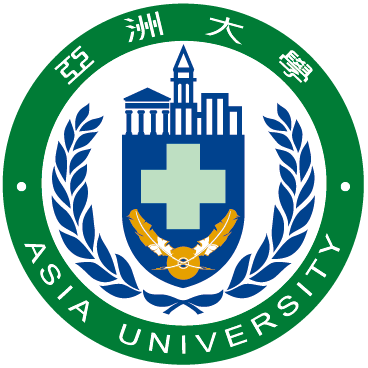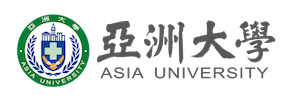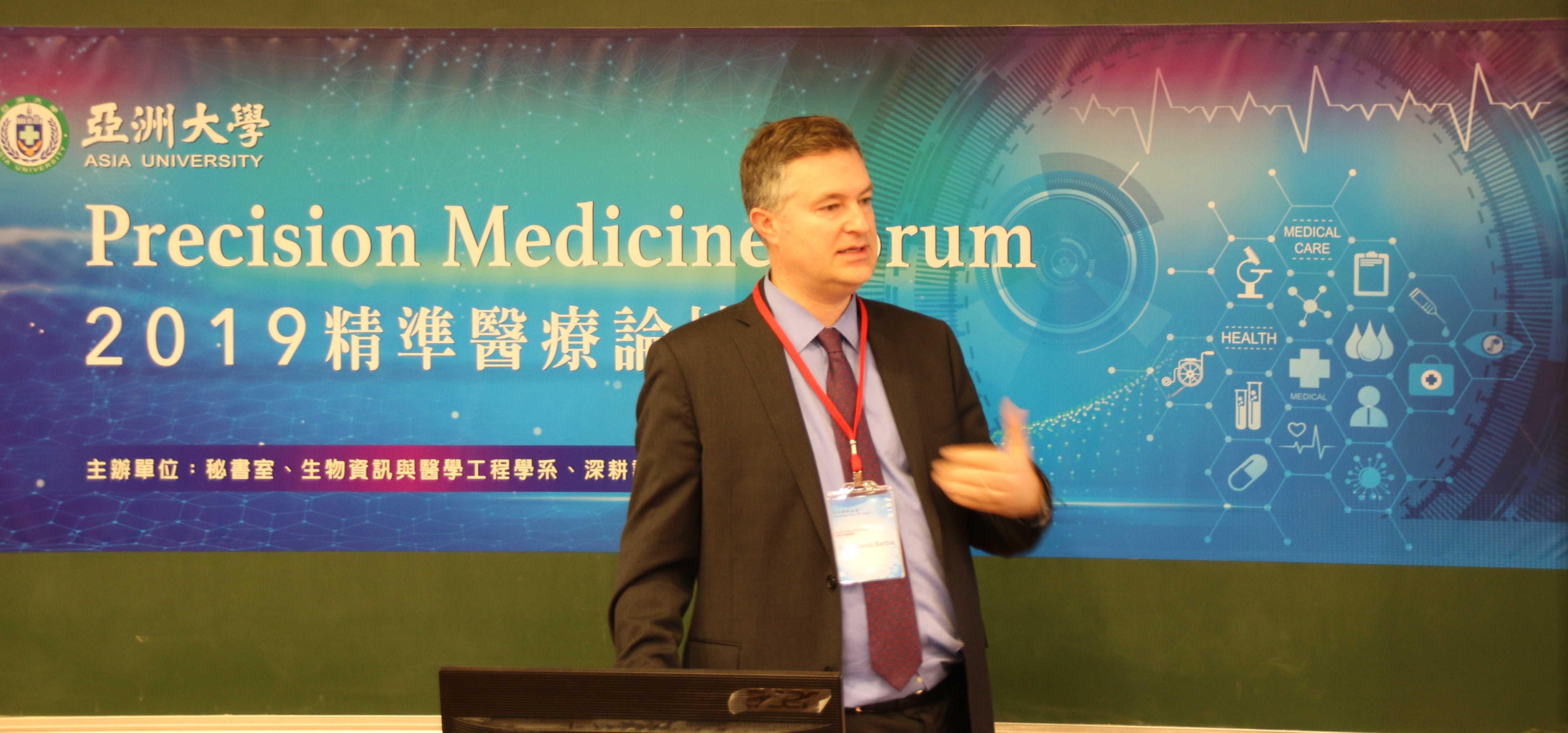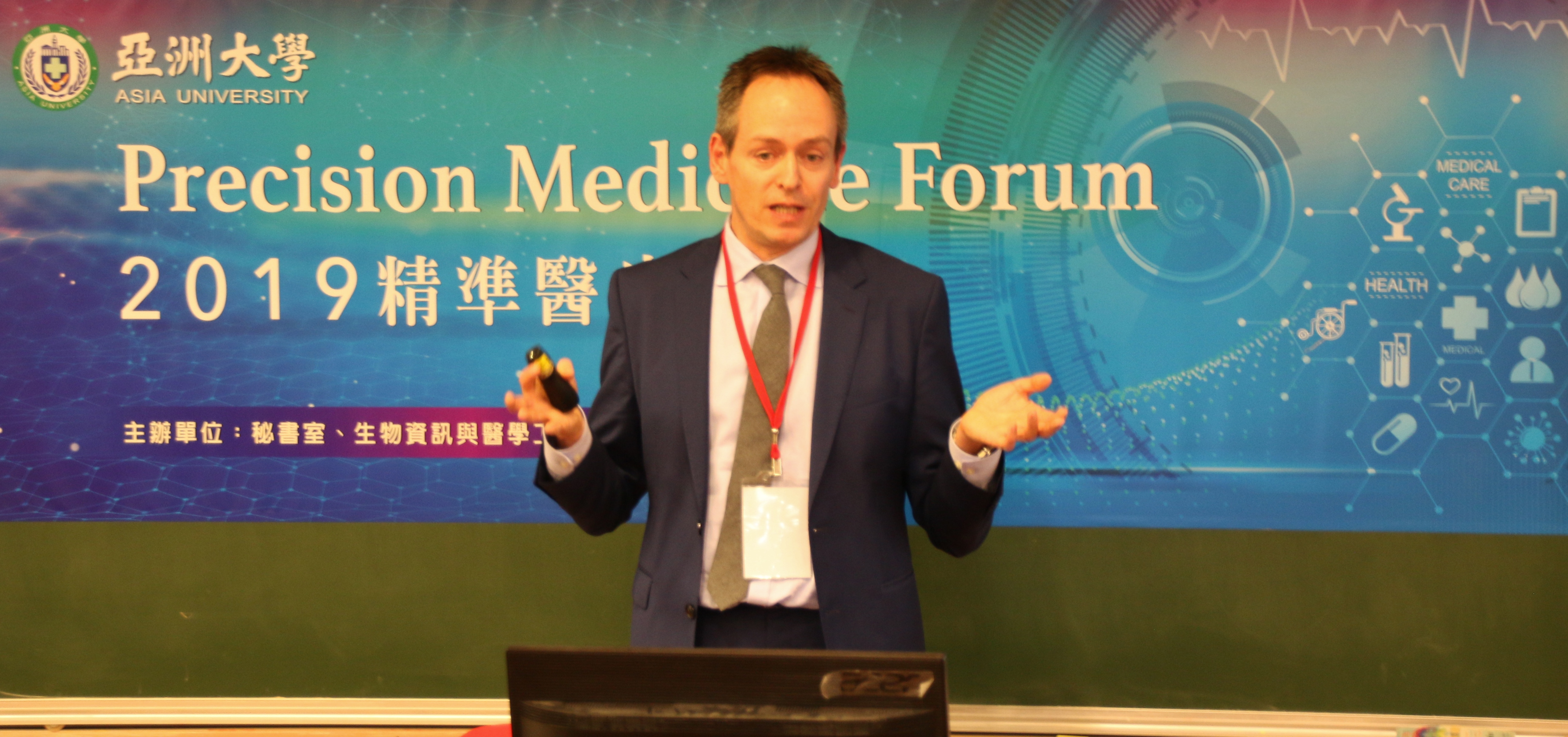Asia University (AU) held the 2019 International Precision Medicine Forum on Dec. 9. In the opening ceremony, Jeffrey J. P. Tsai, the President of AU, gave a welcome speech and introduced three famous speakers from Harvard Medical School at Harvard University: Dr. Alireza Haghighi, Dr. Patrick Ott, and Dr. David Allen Barbie. The three speakers were invited to participate in the event and share their latest advances in personalized medicine. In the morning session, Dr. Haghighi pointed out that every patient is a unique entity for research discovery. Studies on one single patient can provide effective therapy for treating patients suffering from similar diseases or related genetic mutations. The future direction of the medical research is to see the disease of a patient as a unique entity.
AU President Tsai said that the Department of Bioinformatics was the first of its kind which was built in 2003. Since then, AU have got started on biomedical researches in personalized medicine with Jan-Gowth Chang, a Vice Superintendent at the China Medical University Hospital. Moreover, AU had outstanding results of research performances in several fields, including artificial intelligence, blockchain technology, fintech applications, smart agriculture, food safety, 3D printing, and fake-news studies. Through the exchange of the latest advances, AU looked forward to promoting their progress in clinical practices of precision medicine.
Dr. Alireza Haghighi, a faculty member at the Department of Medicine of Harvard Medical School and the Brigham and Women’s Hospital, and President of Advancement Initiative for Medicine and Science (AIMS), is the founder and director of GEnetics NEtwork in the Middle East (GENE-ME). Dr. Haghighi delivered a lecture entitled “Bridging the gap: precision clinical care and innovative therapies,” and emphasized that patients are unique; therefore, seeing patients as individuals is an important subject for more accurately diagnosed diseases.
Dr. Patrick Ott, an assistant professor at Harvard Medical School, and a clinical director and physician of the Melanoma Center and the Center for Immuno-Oncology, gave a lecture on “Personalized Cancer Neoantigen Vaccine.” In his speech, Dr. Ott said that neoantigen-based cancer vaccines are considered as a tool that efficiently stimulates the expansion and diversification of T cells responses against tumors, because the tumor neoantigen is the key target for triggering an anti-tumor immune response. Moreover, he and his research team developed a type of neoantigen cancer vaccine called NeoVax. The vaccine was aimed at generating strong responses to the specific neoantigens from T cells in melanoma patients. As many of the T cells were able to recognize the tumor cells directly, the therapeutic method for tumor-specific T cells has greatly improved the clinical survival rate of cancer patients.
Dr. David Allen Barbie is an associate director of the Robert and Renée Belfer Center for Applied Cancer Research and associate professor at Harvard Medical School. His interest is to identify new targets for cancer therapy. In his speech entitled “the Research Progress in Lung Cancer Targets and Immunotherapy,” Dr. Barbie introduced that the mechanism of resistance to anti-PD-1 drug in cancer cells using 3D microfluidic in vitro. Immunotherapy with immune checkpoint inhibitors (ICIs) against PD-1 can enhance responses to drugs for lung cancer patients. Finally, with recent advances in technology, it is now becoming possible to create a therapy that is suited to target an individual’s tumor.
|
Prof. David Allen Barbie of Harvard Medical School gave a keynote speech at the forum. |
Prof. Patrick Alexander Ott from Harvard Medical School delivered a keynote speech at the forum. |





